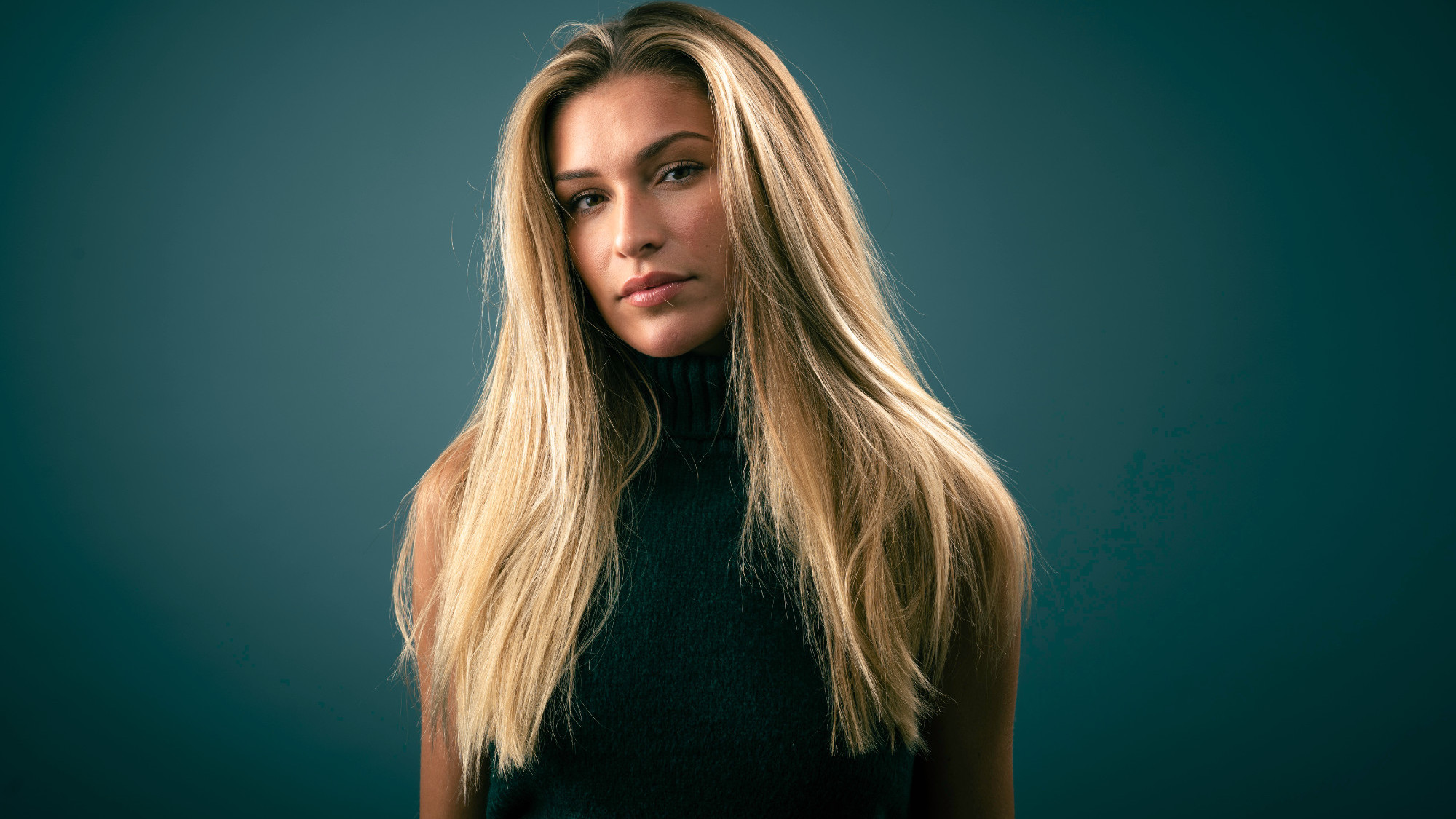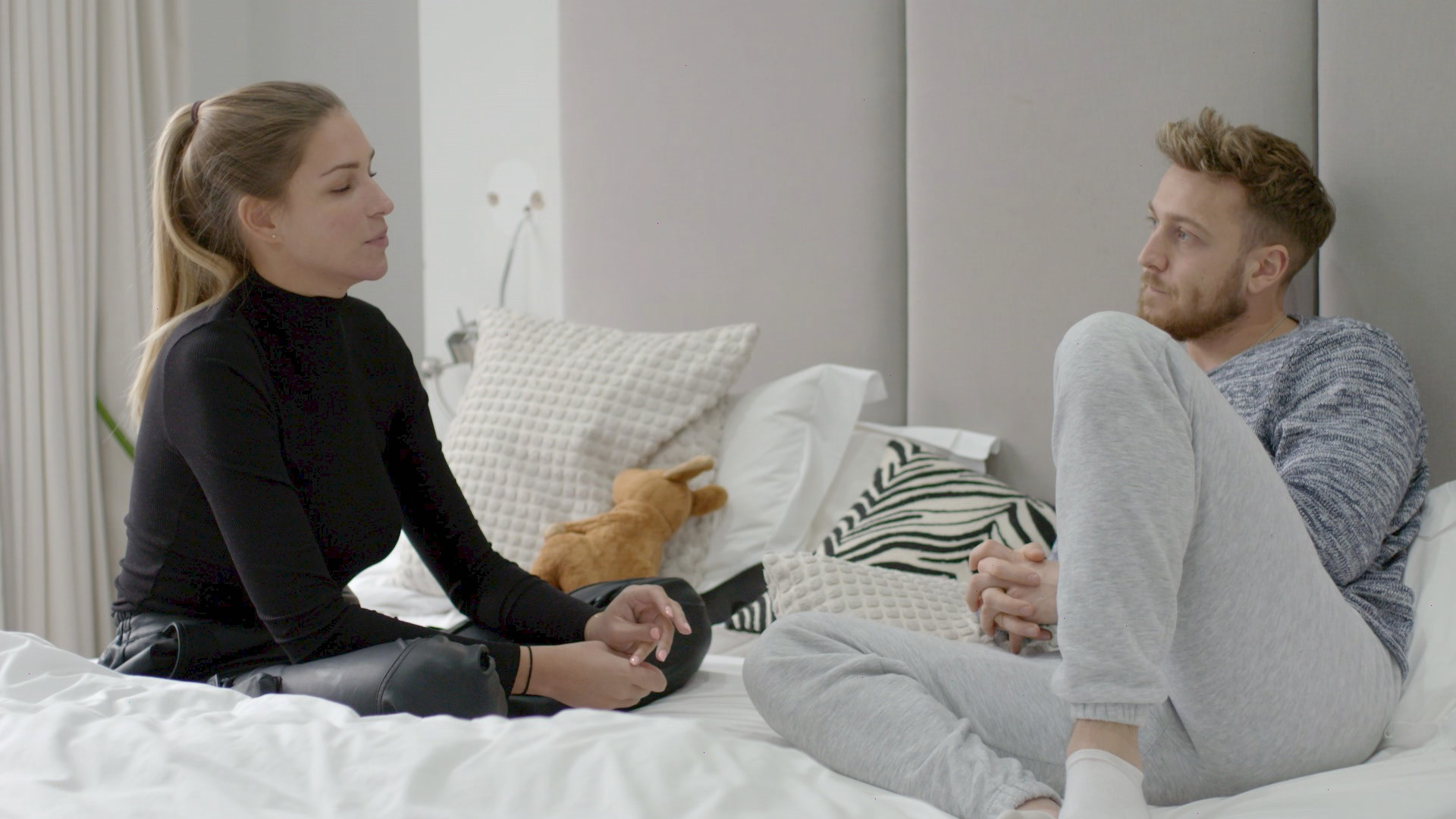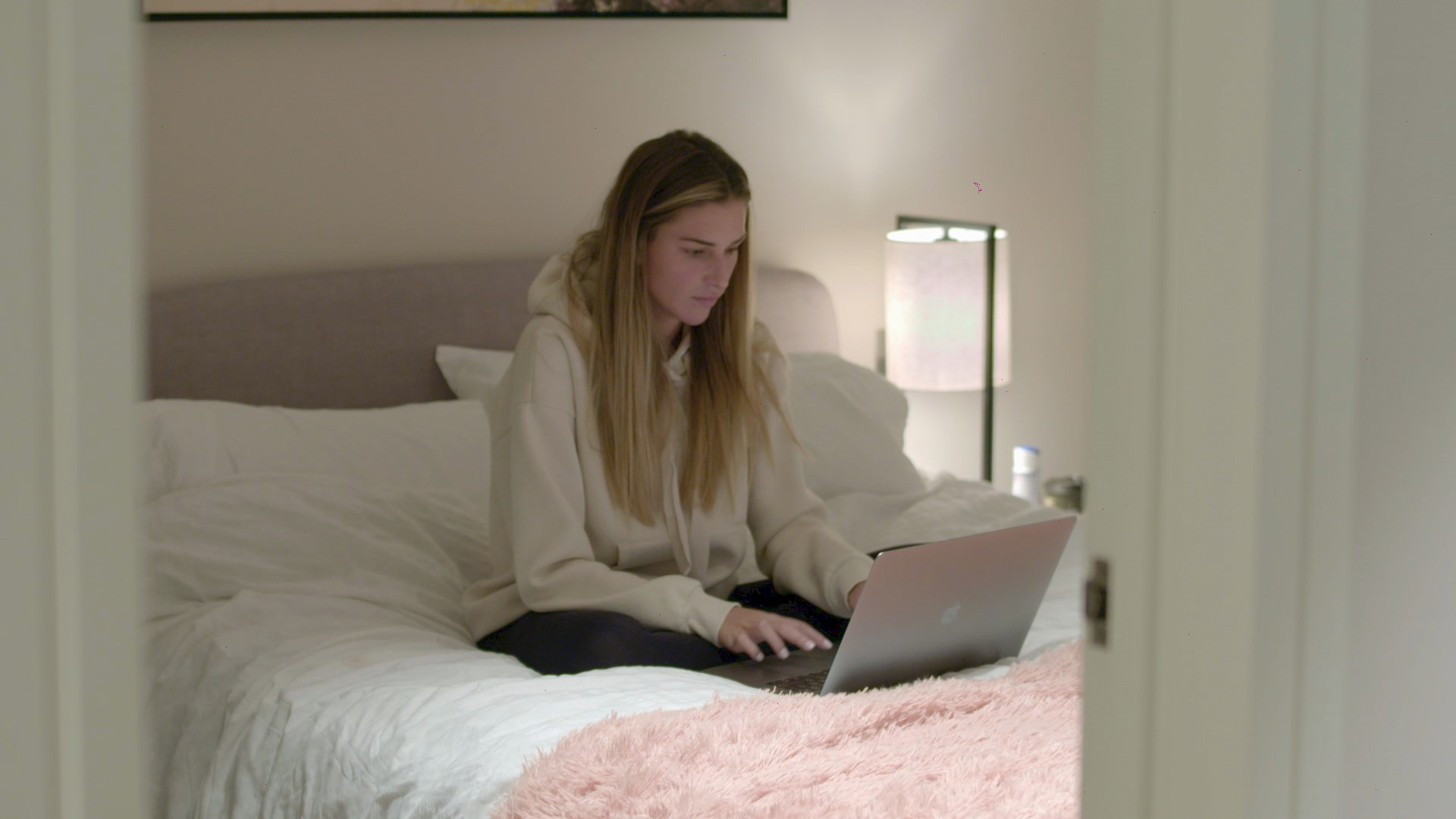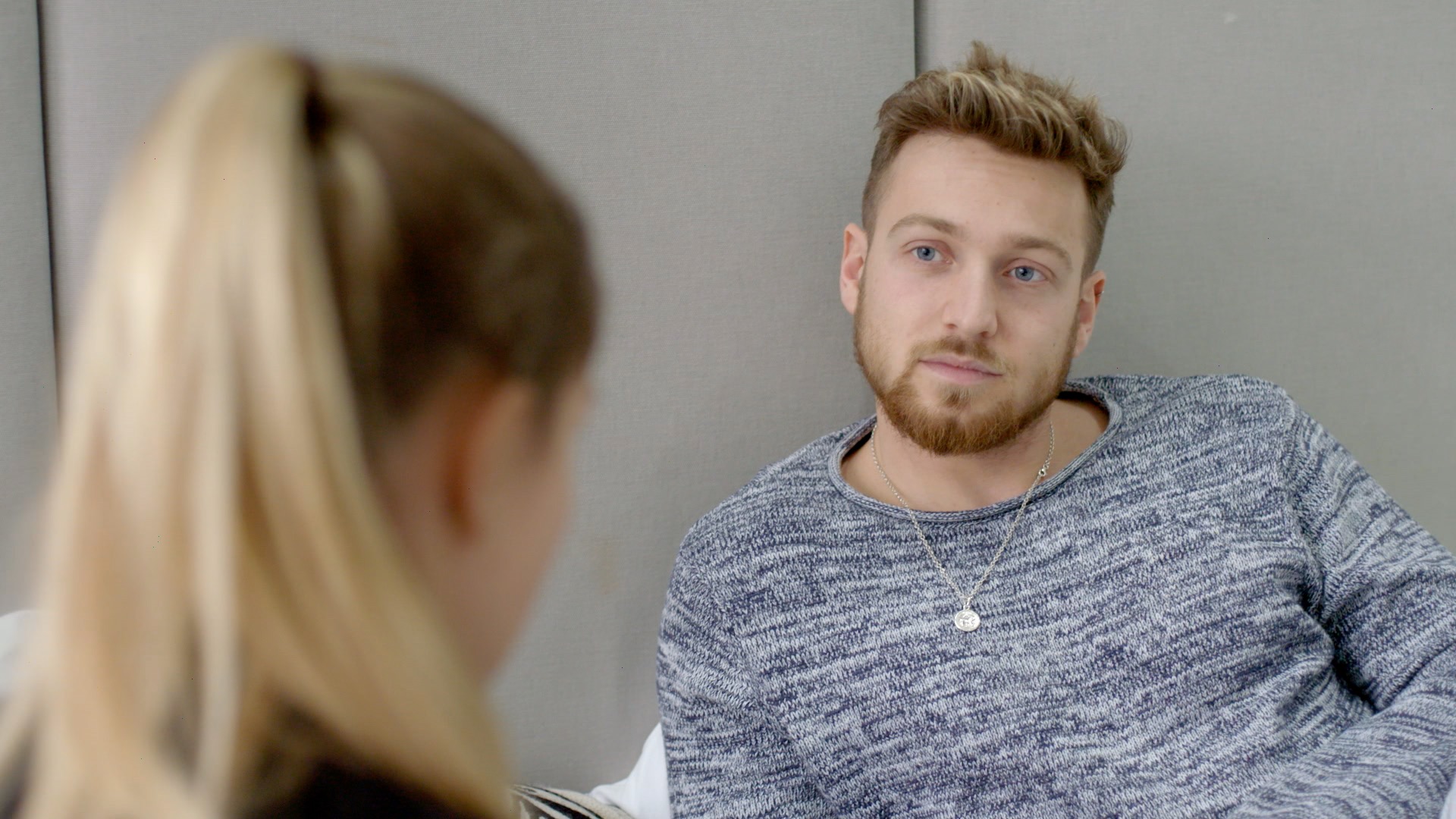Zara McDermott on revenge porn: 'Since the first time it happened, I've struggled with many issues'
As the government announces revenge porn threats will become a criminal offence under new changes to the domestic abuse bill, Zara speaks to Marie Claire about the 'same mistake twice' myth - a significant yet subtle form of victim blaming


As the government announces revenge porn threats will become a criminal offence under new changes to the domestic abuse bill, Zara speaks to Marie Claire about the 'same mistake twice' myth - a significant yet subtle form of victim blaming
Zara McDermott is famous for several reasons. She was a star in 2018’s Love Island; makes her living via Instagram (1.5m followers and counting); and has a boyfriend who’s in the public eye too – Made In Chelsea’s Sam Thompson. But for many people, her name rings a bell for an entirely different reason – they’ve seen intimate photos of her.
Zara McDermott and her confession
Now, she’s fronting a fantastic new BBC documentary, Zara McDermott: Revenge Porn, and using her platform to raise awareness of the problem. And it’s a growing issue – the Revenge Porn Helpline saw a massive 87 per cent increase in the number of adults seeking support for image abuse last year.
During Zara’s time in the Love Island villa an ex-partner chose to share private photos of the then 21-year-old, and the images spread like wildfire via social media before making their way into the press. But Zara McDermott uses her documentary as a space to 'confess' that, before her Love Island headlines, she'd had a previous experience of revenge porn as a teenager. When it happened the second time, she admits: “My first emotion was: ‘how could I have been such an idiot, again?’”
And it’s this reaction – whether internal, external or a combination – that can stop repeat victims from speaking out.
'It's damaging to feel angry with myself'
I asked Zara McDermott about the damaging idea that experiencing revenge porn once is forgivable, but somehow ‘letting it happen’ again opens you up to judgement. It’s obviously something she’s thought about a lot.
“I think there are several things at play here,” she tells me. “Number one: I never want to feel that anger towards myself; that is victim blaming and that is incredibly damaging. I am only hurting myself with that anger. I think we need to remember that I did not commit a crime by sharing these images in a trusting relationship. The person who is at fault here is the man who decided to breach my trust and share them without my consent.” Let’s remind ourselves that this man – a lawyer in his 30s – definitely knew better.
Celebrity news, beauty, fashion advice, and fascinating features, delivered straight to your inbox!
'Sending intimate pics is totally normal'
“The second thing I’d like to touch on is the fact that this is so common in relationships. Every single one of my friends I have spoken to has sent a picture before. Every single one. It is completely common and ’normality’ in a lot of young relationships, who have grown up with a phone in their hands.”

This is further demonstrated by the response to her Instagram posts about revenge porn – her inbox was quickly filled by young women who had experienced its stigma, and many of their stories also feature in the documentary.
“What happened to me [the first time] was awful and should have theoretically scared me from ever trusting someone again,” she says. “But I couldn’t live my life like that and I tried not to let my mistrust and scars from the past bleed into future relationships.”
And she has a point. Are we suggesting that women – particularly those who have been victims of revenge porn – should keep a perpetual guard up in future relationships?
'I sought gratification from men about my body'
Her final insight into how she fell victim for a second time is perhaps the saddest. “Thirdly, and lastly, I think I have always struggled with my self-esteem since the incident at 14 years old; a lot of this being down to my appearance in the image. Therefore, getting the gratification from a man that, in fact, I am good enough, my body is good enough, I think temporarily healed those wounds I had. I know this is the wrong mind-set to have, and perhaps I should have sought help for these issues years before, you can’t blame the thought process. It was almost an act of rectification.”

This is a clear insight into why victims so often suffer repeatedly – the insecurity caused by the first instance, and wanting to be loved and trust in someone again, can often mean victims of revenge porn are left vulnerable. And judging them is a damaging and unhelpful response (not to mention one that lets the real villains off the hook).
The 'second mistake myth'
In the documentary, she confronts the issue of the ‘second mistake myth’ head-on with Sam. People, she tells him, are always asking her how she could have let it happen twice. “My response to that, would be that it’s not a mistake,” she says. But even her boyfriend fails to understand it.
He knows she feels insecure as a result of what’s happened, more guarded, and admits that he ‘doesn’t know what she carries inside’, and yet… there’s a doubt there. “You’re completely correct,” he begins, before immediately undermining that support, “but I’d have thought you’d’ve been a bit more wised up that people in this world are a******s.”
She should, he feels, be more aware of the potential consequences of sharing photos. But does this mean that no men – himself included – can ever be truly trusted? Would it be fair game, should they split up, that any intimate images or messages that have passed between them could be shared publicly? Or perhaps just within his friends’ WhatsApp chats? After all, it was in one of these groups where he’d already seen a nude photo of Zara before they’d even met. Does he feel it’s just the sort of behaviour to be expected from men?

I imagine he’d be uncomfortable with this line of questioning, but it’s exactly this discomfort that – across the spectrum of sexual violence – keeps the emphasis on victim behaviour, rather than examining those truly at fault.
Revenge porn - why men are getting away with it
We need to start asking the right questions. Why do men and boys so often feel it's acceptable to share images that they know were sent to them in confidence? Where are the consequences for them? Zara’s teenage experience led to her exclusion from school, while the boy who’d shared her pictures escaped punishment.
“I find that just extraordinary,” said Baroness Nicky Morgan on R4 Woman’s Hour. “I hear the school’s statement that this was 10 years ago and things have changed, and I think we all hope that’s very much the case. But I think generally in a lot of these instances, actually the victim is still blamed far too often. And it is the abuser, the perpetrator, the person threatening to share these images or who does share them – they are the person who is at fault.”
Revenge porn laws must be updated
Baroness Morgan joined Zara in demanding the laws around revenge porn be changed and both backed Refuge’s The Naked Threat campaign to criminalise the threat of sharing intimate images. Currently, those who share explicit photos or videos without consent (where it can be proven there’s an intent to cause distress) can receive a prison sentence of up to two years. Campaigners wanted the threat of sharing images to be added to the existing legislation.
Thanks to pressure from campaigners such as Zara and Baroness Morgan, the government confirmed on March 1, 2021 that it would introduce legislation as an amendment to the domestic abuse bill being debated in parliament. The law change, which is part of a series of amendments being made, will make threatening revenge porn punishable by up to two years in jail. “This is such welcome news," Zara told The Guardian. "I’m so glad I’ve been able to use my platform to support Refuge and call for this change in the law. Together with survivors, with politicians and with the thousands of supporters that took action, we did it! Change is coming and I’m thrilled.”
Baroness Morgan told the newspaper: “At the start of this campaign, I said it was my duty as a politician to stand up and protect women and girls and I am delighted the government has recognised the urgency of securing this law change.”
In the meantime, it’s a good opportunity to address our own beliefs and judgements around revenge porn (and victim blaming more widely). How we speak about these issues – to victims, to young women, to boys and society as a whole – can have a devastating impact.
We might feel that by glancing at an image in a group chat, revelling in a celebrity misfortune, or simply asking the question, ‘how can someone let that happen twice?’ we’re not really contributing to the problem. But every throwaway comment can have an impact on someone’s suffering. The ‘same mistake twice’ myth might seem like a complex situation to understand, but at its heart it’s very simple: the victim is just that, a victim. Let’s turn our attention elsewhere and start asking better questions.
* Zara McDermott: Revenge Porn is available on BBC Three on iPlayer now
* If you’ve been affected by these issues, contact the Revenge Porn Helpline * Lizzy Dening is the founder of award-winning platform Survivor Stories - a collection of interviews with survivors of sexual violence
Lizzy Dening is a freelance journalist and editor, specialising in writing about sexual violence, women’s rights, opinion pieces and health. Also, when in need of a break from the bleaker stuff, the odd travel piece or film and book review.
She’s the founder of Survivor Stories, a website featuring interviews with survivors of sexual violence in their own words, and is co-vice chair of Peterborough Rape Crisis Care Group. She’s passionate about listening to survivors, helping them share their stories and shutting down victim blaming. As you might imagine, she’s a right laugh at dinner parties.
She’s been previously published by titles including The Guardian, Grazia, Elle, The Independent, iPaper, the Telegraph, Huffington Post and Women’s Health, and has been digital editor at two national titles. Now self-employed, she considers her cat Moomin her closest colleague, although he’s unreliable when it comes to the tea-round.
Originally from Cambridge, she now lives in Peterborough where she regularly organises events including an annual Reclaim the Night march, feminist film screenings and fundraisers for Peterborough Rape Crisis. She’s also a volunteer at a local food bank (bag packing rate: ninja level) and does occasional PR and comms work for charities and causes. There’s rarely a petition she hasn’t signed.
Avid reader and book club botherer; champion of niche feminist icons; currently learning to play football; wears too much leopard print; sometime poet; Kinder Egg enthusiast; spends a lot of time thinking about going for a run. Favourite places include Sheringham beach, New York, Vienna, Hawaii, obscure museums, the local park, and bookshops.
Currently in the process of launching her first podcast with her (award-winning) podcast producer husband, Ross Sutherland – watch this space…
